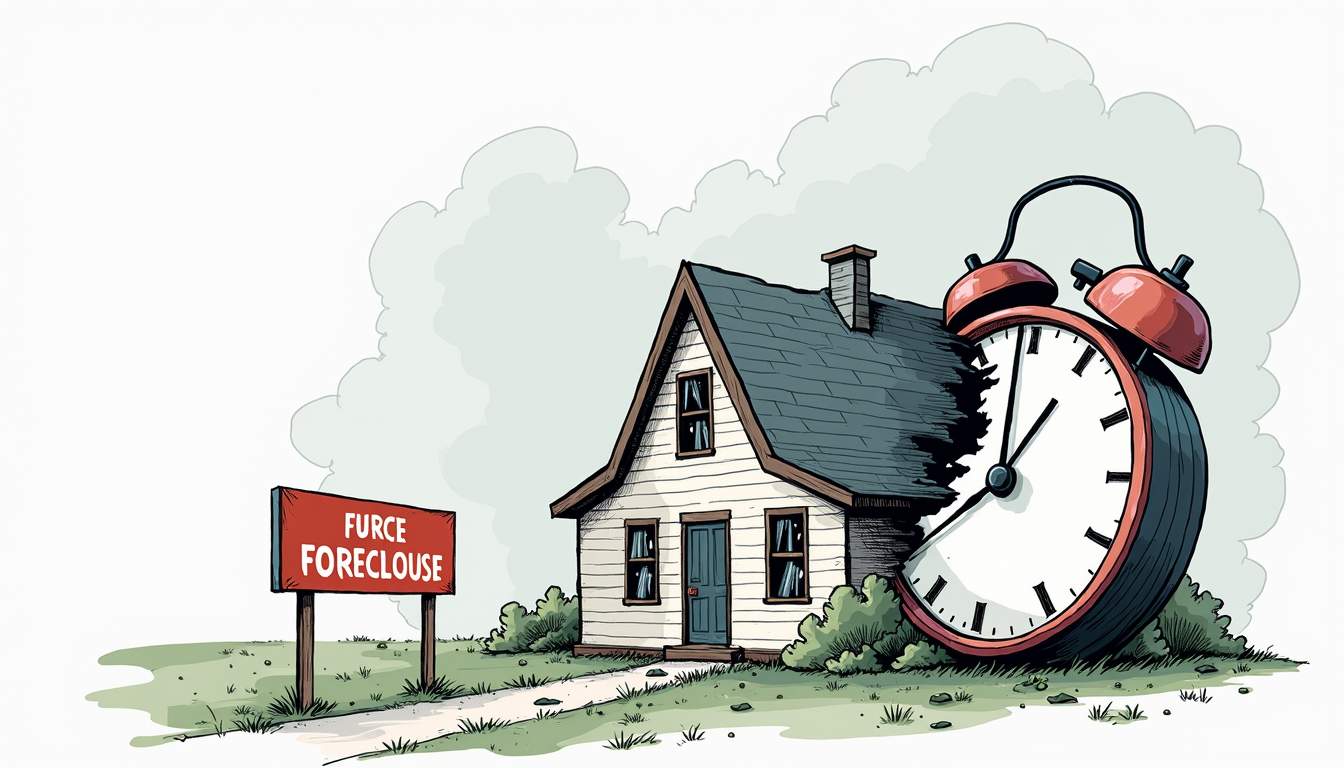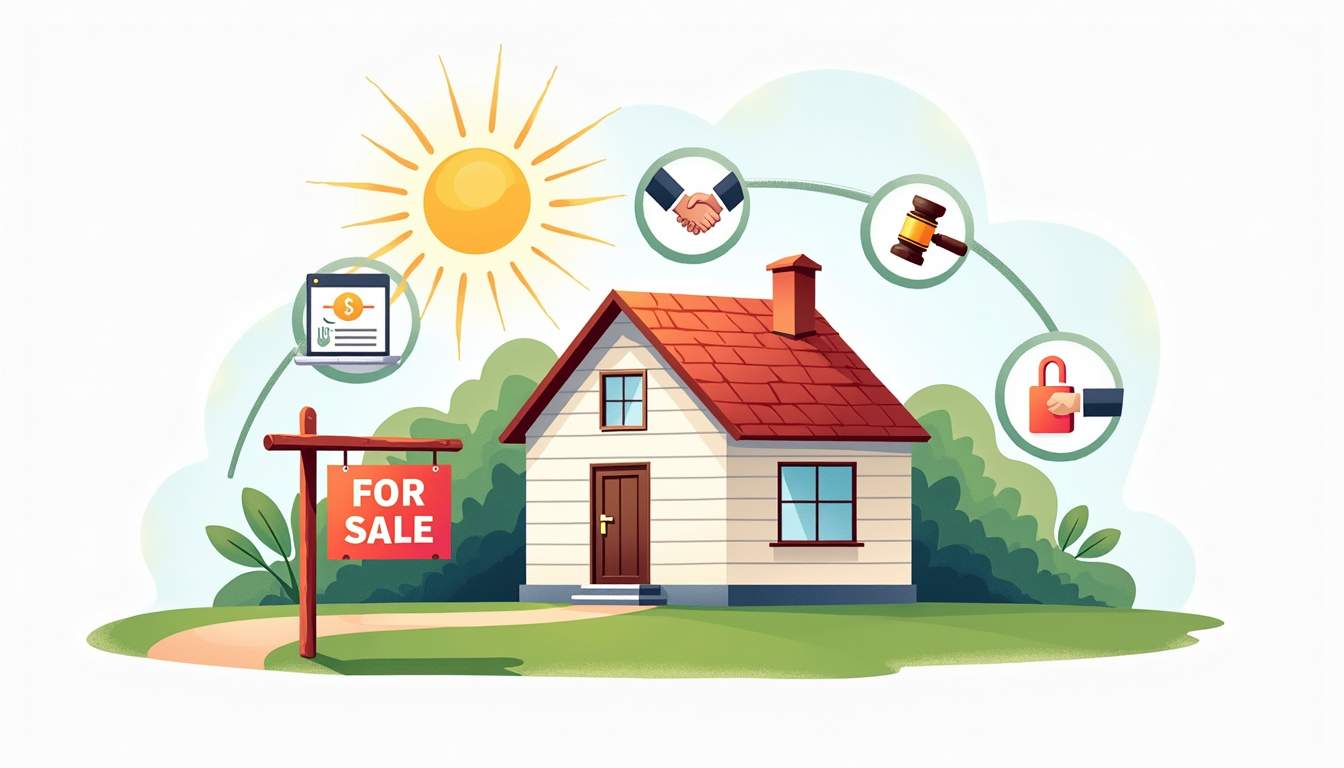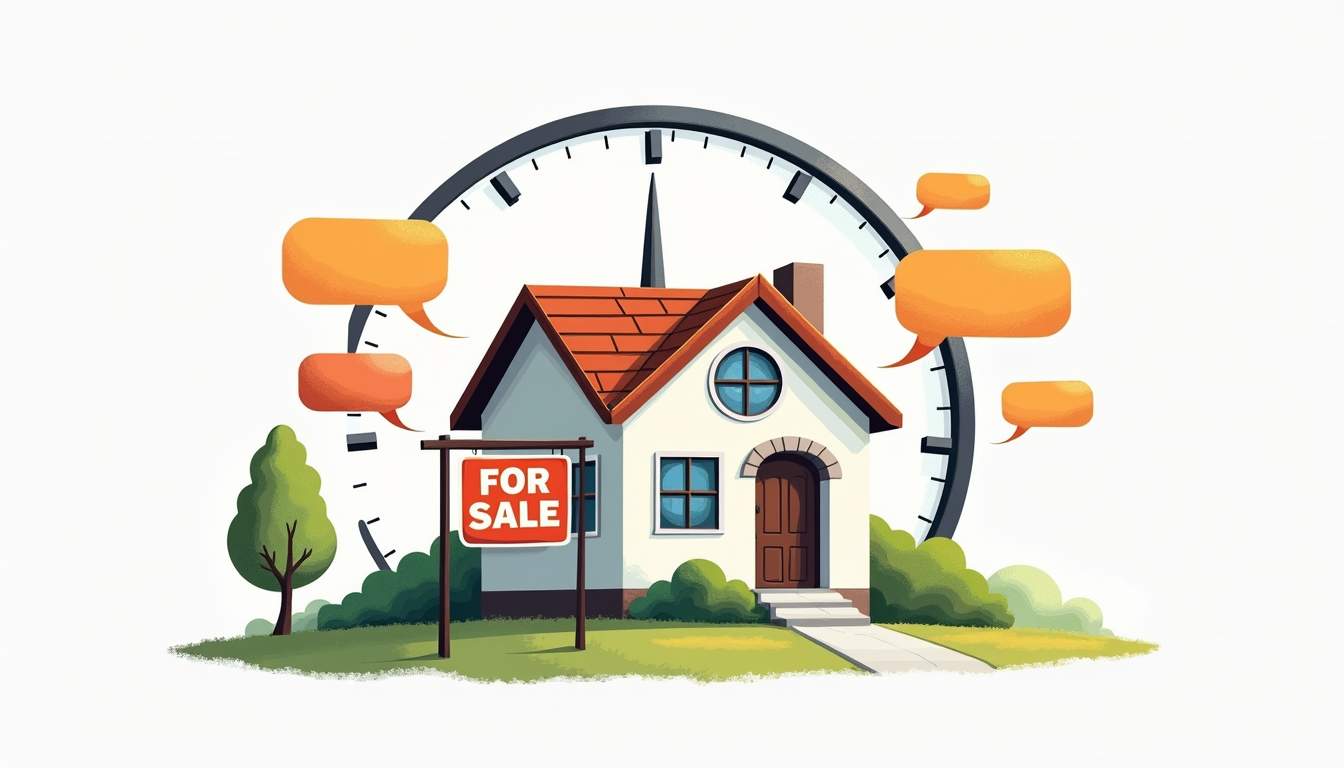
Facing foreclosure can be one of the most stressful experiences a homeowner can endure. The pressure of mounting bills, missed payments, and the looming threat of losing your home can be overwhelming. However, there are ways to sell your house quickly to avoid foreclosure and regain control of your financial situation. This article will guide you through the process, providing practical tips and strategies to help you sell your home fast.
Before diving into the selling process, it’s essential to understand what foreclosure means. Foreclosure occurs when a lender takes possession of a property due to the homeowner's inability to make mortgage payments. This legal process can vary by state, but it generally involves the lender initiating a lawsuit to reclaim the property. The timeline for foreclosure can also differ widely, with some states allowing for a relatively quick process while others may take months or even years. Understanding these nuances can help homeowners navigate the complexities of their situation more effectively.

Foreclosure can have severe consequences, including a significant drop in your credit score, making it difficult to secure loans in the future. The impact on your credit can last for years, potentially affecting not just your ability to buy another home, but also your chances of obtaining credit cards or even car loans. Therefore, acting quickly is crucial if you find yourself in this situation. Seeking advice from financial experts or housing counselors can provide valuable insights and options that may help mitigate the fallout.
Recognizing the signs of impending foreclosure can help you take proactive measures. Some common indicators include receiving late payment notices, constant calls from your lender, or being unable to keep up with your mortgage payments. Additionally, if you notice that your property taxes are going unpaid or you are receiving notices from the county about tax liens, these can be red flags indicating financial distress. If you find yourself in this situation, it’s vital to explore your options without delay. Early intervention can sometimes lead to alternatives such as loan modifications, repayment plans, or even short sales, which can help you avoid the more severe consequences of foreclosure.
Moreover, understanding the emotional toll that foreclosure can take is equally important. Homeownership is often tied to personal identity and stability, and facing the loss of your home can lead to feelings of anxiety, shame, and helplessness. It’s crucial to seek support from friends, family, or professional counselors who can provide emotional assistance during this challenging time. Remember, you are not alone in this situation, and there are resources available to help you navigate the complexities of foreclosure and regain control over your financial future.
Once you’ve decided to sell your home to avoid foreclosure, the next step is preparation. This phase is critical as it can significantly impact the speed and success of your sale.
Start by determining your home’s market value. This can be done through online valuation tools, but for a more accurate assessment, consider hiring a professional appraiser. Knowing your home’s value will help you set a competitive price that attracts buyers while ensuring you cover your outstanding mortgage balance. Additionally, researching comparable homes in your neighborhood can provide insights into current market trends, allowing you to position your property more effectively. Pay attention to recent sales, the condition of those homes, and any unique features that may set your property apart.
While it may seem counterintuitive to invest money in repairs when facing foreclosure, making essential fixes can enhance your home’s appeal and increase its value. Focus on minor repairs that can be completed quickly, such as fixing leaky faucets, painting walls, or improving curb appeal through landscaping. Furthermore, consider staging your home to showcase its potential. This could involve rearranging furniture, decluttering spaces, or adding inviting touches like fresh flowers or scented candles. A well-presented home can evoke emotional responses from potential buyers, making them more likely to envision themselves living there and ultimately leading to a quicker sale.
In addition to physical repairs, it’s also wise to address any lingering odors or cleanliness issues. A thorough deep clean can make a significant difference in how your home is perceived. If necessary, hiring a professional cleaning service can ensure that every corner is spotless, from the kitchen to the bathrooms. Remember, first impressions matter, and a clean, fresh environment can set the tone for a successful showing. As you prepare your home for sale, consider how you can create an inviting atmosphere that allows potential buyers to feel at home from the moment they step through the door.
There are several methods to sell your home quickly, each with its advantages and disadvantages. Choosing the right approach can make a significant difference in how fast your home sells.

One of the most common ways to sell a home is through a real estate agent. An experienced agent can help you navigate the selling process, market your home effectively, and negotiate with potential buyers. They often have access to a broader network of buyers, which can expedite the sale.
However, keep in mind that agents typically charge a commission, which can affect your overall profit. Make sure to discuss fees upfront and clarify their marketing strategy to ensure it aligns with your urgency to sell.
Another option is to sell the home yourself, known as For Sale By Owner (FSBO). This method allows you to avoid paying a commission to an agent, potentially increasing your profit. However, selling your home without professional assistance requires significant effort in marketing, showing the property, and negotiating with buyers.
Success in FSBO often hinges on your ability to market the home effectively and your knowledge of the real estate market. Be prepared to invest time and effort into the process.
For those looking to sell quickly, cash buyers or real estate investors can be an appealing option. These buyers often purchase homes as-is, meaning you won’t need to make repairs or renovations. The transaction process is typically faster, allowing you to close quickly and avoid foreclosure.
However, be aware that cash offers may be lower than market value. It’s essential to weigh the benefits of a quick sale against potential financial losses.
Once you’ve chosen a selling method, the next step is to market your home effectively. Good marketing can attract more potential buyers and lead to a faster sale.
In today’s digital age, online listings are crucial for reaching a wide audience. Utilize popular real estate websites to list your home, ensuring you include high-quality photos and a detailed description. Highlight key features and any recent upgrades that may attract buyers.
Social media platforms can also be powerful tools for marketing your home. Share your listing on platforms like Facebook, Instagram, and Twitter to reach friends, family, and potential buyers in your network.
Hosting open houses can create buzz and attract interested buyers. Make sure your home is clean, well-lit, and inviting during showings. Consider baking cookies or brewing coffee to create a welcoming atmosphere. This small gesture can leave a positive impression on potential buyers.
Once you start receiving offers, it’s essential to navigate this phase carefully. Understanding how to evaluate and negotiate offers can significantly impact your sale.

When evaluating offers, consider not just the price but also the buyer’s financial situation. A higher offer may be appealing, but if the buyer is not financially stable, the sale could fall through. Look for pre-approved buyers or those with cash offers, as these transactions tend to close faster.
Negotiation is a critical skill in real estate transactions. Be prepared to negotiate terms such as the closing date, contingencies, and repairs. Flexibility can help you reach an agreement that satisfies both you and the buyer.
As you move toward closing the sale, it’s crucial to understand the associated costs. Closing costs can vary significantly, so being informed will help you avoid surprises.
Common closing costs include title insurance, attorney fees, and transfer taxes. These costs can add up, so it’s essential to budget accordingly. In some cases, sellers may negotiate to have buyers cover certain closing costs, but this is something to discuss during negotiations.
On closing day, be prepared to sign a significant amount of paperwork. It’s advisable to have a real estate attorney or agent present to guide you through the process. Ensure you have all necessary documents, including the title deed and any disclosures required by your state.
After successfully selling your home, it’s important to consider your next steps. Transitioning from homeownership can be challenging, but it can also be an opportunity for a fresh start.
If you’re not immediately purchasing a new home, consider your temporary housing options. This could range from renting an apartment to staying with family or friends. Evaluate your budget and needs to determine the best fit for your situation.
Finally, focus on rebuilding your financial future. Selling your home can relieve the financial burden of foreclosure, but it’s essential to create a plan moving forward. Consider consulting with a financial advisor to help you manage your finances, rebuild your credit, and set achievable financial goals.
Facing foreclosure is undoubtedly a challenging experience, but selling your house quickly can provide a path to financial recovery. By understanding the foreclosure process, preparing your home for sale, and choosing the right selling method, homeowners can navigate this difficult time more effectively.
With careful planning and proactive measures, it’s possible to sell your home fast and avoid the repercussions of foreclosure. Whether working with a real estate agent, opting for a cash buyer, or selling it yourself, the key is to act quickly and strategically. Remember, the sooner you take action, the better your chances of achieving a successful sale.
Should I Sell My House or Rent It Out?
How to Sell My House Privately: A Step-by-Step Guide
We purchase homes directly from sellers, offering homeowners a quick, straight-forward sale.Contact us for a free valuation and offer.
get my house valuation now